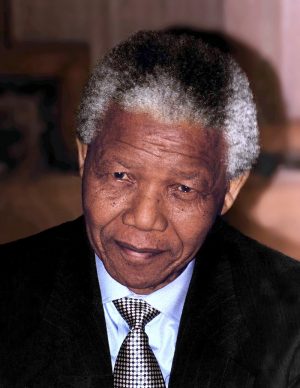Nelson Mandela was an iconic leader who dedicated his life to fighting for equality and justice. His story is one of courage and determination in the face of incredible odds. After spending 27 years in prison, he became the first black president of South Africa and worked tirelessly to improve the lives of all South Africans. Nelson Mandela was a remarkable man with a legacy that will continue to be felt for many years to come. His legacy is evident in the steps South Africa has taken toward racial reconciliation, and his example continues to be an inspiration for people around the world who are fighting for equality and justice.
Anti-Apartheid Struggle
Mandela was born at a time when black people in South Africa were treated as second-class citizens, and he witnessed firsthand the discrimination and violence that they faced. Despite this, he never gave up on his dream of a better future for himself and his countrymen. He eventually became a leader of the anti-apartheid movement, and his efforts helped to bring about the end of racist rule in South Africa. Even when he was sent to prison, he did not give up hope, and his release in 1990 was a turning point in the country’s history.
Racial Reconciliation
After spending 27 years in prison, Mandela was released in 1990. He immediately resumed his work for equality and justice. After apartheid ended, Mandela was elected as the country’s first black president. He set up many programs to help those disadvantaged by apartheid. He also worked hard to promote reconciliation between the different racial groups in South Africa, and his policies helped improve millions of people’s lives.
His leadership helped to ease tensions between the country’s different racial groups, and under his guidance, South Africa began to heal from its divisions. His efforts to promote racial reconciliation and build a more equitable society in South Africa won him international acclaim, and he is widely respected as one of the most important figures in South African history.
Mandela’s legacy is evident in the steps South Africa has taken toward racial reconciliation. After years of apartheid, the country is now a much more diverse and inclusive society. Black people have been elected to positions of power, and laws have been passed to protect the rights of all citizens.
Children’s Rights
Mandela was also a passionate advocate for children’s rights. He once said, “The true character of society is revealed in how it treats its children.” Mandela believed that every child deserved a safe and happy childhood, regardless of race or background. He worked to improve access to education and health care for all children in South Africa, and his efforts helped to make the country a better place for young people.
He fought for laws and policies that would improve the lives of children, both in his native South Africa and around the world. He also spoke out against violence and poverty, which disproportionately affect children. During his presidency, Nelson Mandela donated a third of his income to establish the Nelson Mandela Children’s Fund, which he tasked with eradicating poverty. Today, the organization carries on his legacy by pledging “to give voice and dignity to the African child by building a rights-based movement.”
While there is still work to be done, South Africa has made great strides in recent years, thanks in part to the legacy of Nelson Mandela. In 2009, Mandela was given the World Children’s Prize Decade Child Rights Hero award in recognition of his work for children. Mandela’s work for children’s rights has had a lasting impact in South Africa and worldwide.
Fight Against HIV/AIDS
In the later years of his life, Mandela turned his attention to the fight against HIV/AIDS. He spoke out about the need for more education and awareness about the disease, which was ravaging his country. He also worked to reduce the stigma around HIV/AIDS and urged people to get tested and treated if they were infected.
In 2003, Mandela launched the 46664 campaign to raise awareness about HIV/AIDS. The campaign, which was named after Mandela’s prison number, used art and music to spread its message. It held concerts and events featuring some of the biggest names in music, including Bono, Beyoncé, and Queen.
The 46664 campaign was successful in raising awareness about HIV/AIDS and helping to reduce the stigma around the disease. According to Michel Sidibe, head of the UNAIDS, Mandela’s work laid the foundation for the modern AIDS response. His efforts contributed to the development of more effective treatments for the disease.
